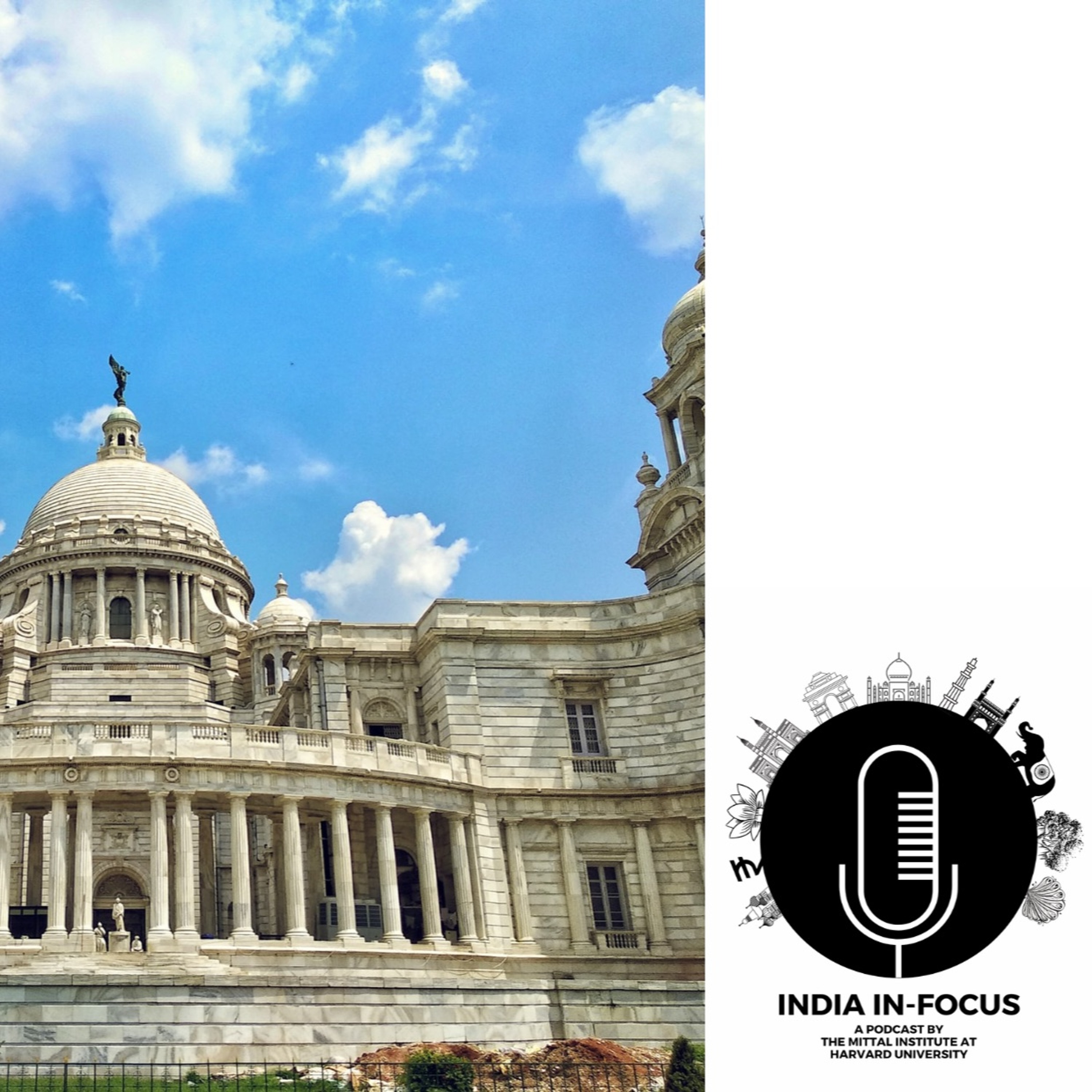Discover The Mittal Institute, Harvard University
The Mittal Institute, Harvard University

The Mittal Institute, Harvard University
Author: The Mittal Institute, Harvard University
Subscribed: 101Played: 667Subscribe
Share
© All rights reserved
Description
The Lakshmi Mittal and Family South Asia Institute, Harvard University (The Mittal Institute) engages in interdisciplinary research to advance and deepen the understanding of critical issues of South Asia and its relationship to the world.
72 Episodes
Reverse
Richard Cash on Solving Dehydration by The Mittal Institute, Harvard University
Tariq Omar Ali
Tariq Omar Ali
India In Focus: Hemakshi Meghani on the Indian School of Democracy by The Mittal Institute, Harvard University
India In Focus: The Union Budget 2022 with Atanu Chakraborty by The Mittal Institute, Harvard University
In this episode, we are in conversation with Professor S.V. Subramanian, professor of Population Health and Geography at Harvard University. Professor Subramanian discusses his ongoing research project India Policy Insights for which he has been awarded a 2.2million-dollar grant by the Bill and Melinda Gates Foundation. His current research interests include developing and applying data science approaches for precision public policy in the context of health, nutrition, and development with a focus on India; and understanding individual and population inequalities in health from a multilevel and cross-comparative perspective.
WIEGO: Marty Chen Interview 2021 by The Mittal Institute, Harvard University
Marty Chen: WIEGO by The Mittal Institute, Harvard University
This panel discusses the development of British diplomatic efforts in Pakistan from 1947 through the “War on Terror,” as chronicled in the new book by Ian Talbot, Director of the Centre for Imperial and Postcolonial Studies at the University of Southampton and Research Affiliate at the Mittal Institute.
In the fifth episode of The COVID Chronicles podcast, Dr. Satchit Balsari speaks with Anup Malani, as they explore India's initial response to the pandemic, the involvement of private sector in scaling up the testing strategies, and innovations in collecting COVID-19 data in India.
The Future of Green India: Energy and Climate Change by The Mittal Institute, Harvard University
India’s response to the Covid-19 pandemic has been characterized by a pro-active public sector leadership and centralization of decision-making. The private sector and academics stepped up to the play in the early days in myriad ways, from wanting to boost testing capacity to providing models to forecast the spread of the disease. Few of these measures were effected in controlling the epidemic, many of the models did not have the data or the correct expertise truly to be helpful. One of the critiques of the response has been the lack of trained infectious disease epidemiologists at the decision-making table. With India beginning its vaccination drives, there were again attempts by thinktanks to propose strategies for prioritizing allocation.
In the fourth episode of The COVID Chronicles podcast, Dr. Satchit Balsari speaks with Dr. Sanjay Mehendale, Director of Research at PD Hinduja Hospital and Medical Research Centre, as they discuss the importance of domain expertise in preparing to combat the epidemic.
A panel from the second day of our Bangladesh at 50 conference.
Shameran Abed, BRAC
Faisal Ahmed, IMF
Ahmed Mushfiq Mobarak, Yale University
Umama Zillur, Kotha
Moderator: Tarun Khanna, Harvard Business School; the Mittal Institute
A panel from the second day of our Bangladesh at 50 conference.
Shameran Abed, BRAC
Zafrullah Chowdhry, Gonoshasthaya Kendra
Umama Zillur, Kotha
Moderator: Borje Ljunggren, Formerly with Swedish Foreign Ministry
A panel from the second day of our Bangladesh at 50 conference.
Hameeda Hossain, Ain o Salish Kendra, Forum Magazine
Shireen Huq, Naripokkho
Naila Kabeer, London School of Economics
Khushi Kabir, Nijera Kori
Moderator: Marty Chen, Harvard Kennedy School; WIEGO
The Lancet Citizens’ Commission on Reimagining India’s Health System is an ambitious, cross-sectoral initiative to lay out the path to universal health coverage in India. Its guiding principle is that structural change toward universal health coverage can only be achieved through consultative and participatory engagement with the diverse sectors involved in healthcare and, most importantly, with India’s citizenry.
This event aims to introduce the Commission to the Harvard community and invite students, researchers, faculty, and alumni to participate in the initiative. It will consist of a panel discussion featuring several of the Commission’s co-chairs and commissioners, who are leading voices from across India’s healthcare landscape. They will discuss the Commission’s five work streams (citizens’ engagement, financing, governance, human resources, and technology) and ways to get involved.
A panel from the first day of our Bangladesh at 50 conference.
Wahiduddin Mahmud, University of Dhaka
Imran Matin, BRAC University
Khairul Islam, Water Aid
Moderator: Richard Cash, Harvard T.H. Chan School of Public Health
A panel from the first day of our Bangladesh at 50 conference.
Hossain Zillur Rahman, Power and Participation Research Centre (PPRC)
Faisal Ahmed, IMF
Ahmed Mushfiq Mobarak, Yale University
Sajeda Amin, Population Council
Moderator: Lincoln Chen, formerly China Medical Board
A panel from the first day of our Bangladesh at 50 conference.
Rounaq Jahan, Centre for Policy Dialogue
Rehman Sobhan, Centre for Policy Dialogue
Moderator: Gary Bass, Princeton University
In the third episode of The COVID Chronicles podcast, Dr. Satchit Balsari speaks with Manoj Mohanan, Associate Professor at the Sanford School of Public Policy at Duke University. His team’s paper published in the Lancet Global Health reports that seroprevalence (the number of individuals in a population who test positive for a specific disease based on serology specimens) in Mumbai varies from 55 to 61% in the slums in Mumbai to 12 to 19% in non-slum settings. The discussion focuses on the findings and implications of this report. Mohanan takes a step back and evaluates the administrative response to the pandemic and how testing could have been conducted more effectively. He observes that the pandemic has shown to light the existing socio-economic disparities. Discussing how best the government can fight misinformation and allay the apprehension of the public regarding the vaccines, Mohanan highlights the importance of clear communication from all levels of government and civil society.


















